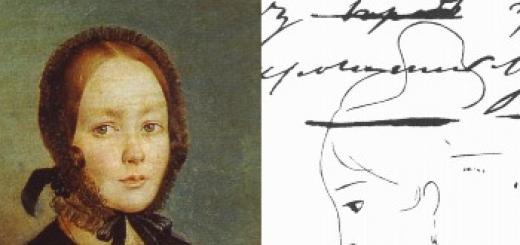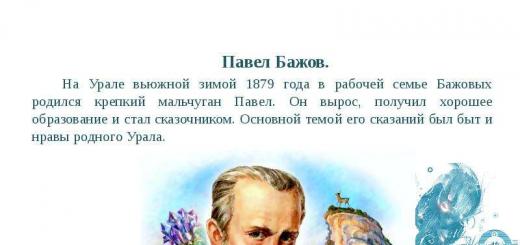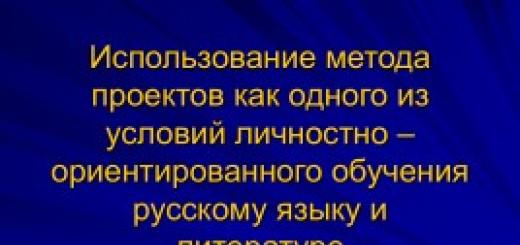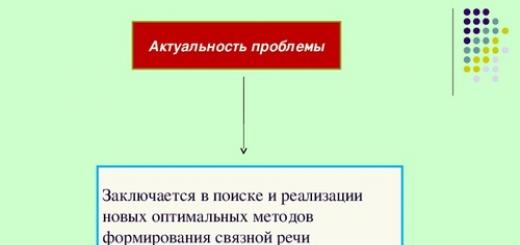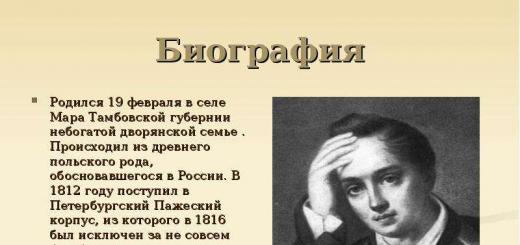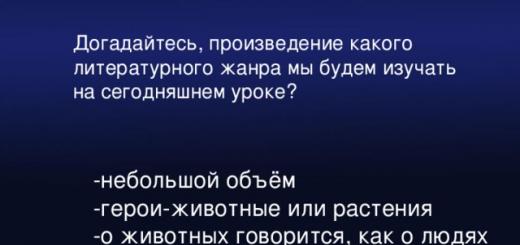Hello! Today you will get acquainted with the present indefinite (simple) time in English - Present Simple, or as it is also called Present Indefenite. The study of tense forms of a verb in English always begins with the Present Simple, since it is basic. If you understand the structure of this tense, it will be easy for you to understand the rest of the tenses.
After studying the material, you will learn in which cases the Present Simple tense is used, get acquainted with the rules for forming the Present Simple and many other nuances of using the Present Simple tense, shown in individual examples.
First, let's define the meaning of Present Simple tense. So, Present Simple expresses actions or states in the present tense, without indicating their duration, completion, precedence in relation to another action, etc.
Actions expressed in the Present Simple refer to the present tense, but, as a rule, do not occur at the moment of speech. This is how Present Simple differs from the present tense in Russian. The Russian present tense denotes both actions that relate to the present period of time and actions that occur at the moment of speech. In English, to express the latter, another form of the present tense is used, namely the Present Continuous. You can see this with this example:
- Present Simple: I speak Russian. - I speak Russian. (meaning, I can generally speak Russian)
- Present Continuous: I am speaking Russian - I speak Russian. (meaning - I speak Russian at the moment)
Rules for the formation of Present Simple Tense
And now it’s time to move on to the main thing - to the rules for forming Present Simple Tense in English.
Affirmative form of Present Simple Tense
To form the affirmative form of the Present Simple, auxiliary verbs are not required. For persons I, you singular and we, you, they plural, the forms of the verb in the Present Simple coincide with the infinitive form. This applies to both regular and irregular verbs.
Only in the 3rd person singular ( he, she, it) ending is added to the verb − s or —es. These endings are pronounced like [s], [z] or . For example:
- I make - he make s
- I sing -he sing s
- I rise - he rise s[ˈraɪzɪz]
The rules for pronouncing and writing these endings are the same as for the plural endings of nouns. You can find them in the article Plurals of nouns in English.
in the affirmative
Question form Present Simple Tense
The interrogative form is formed using an auxiliary verb to do, with the exception of modal verbs and verbs to be And to have. But we'll talk about these exceptions a little later. So, auxiliary verb to do used in forms do or does(For he, she, it), agreeing in person and number with the subject, and the main verb in all persons has the infinitive form.
To form the interrogative form of the Present Simple, the auxiliary verb do (does) is placed first before the subject, and the subject is followed by the main verb in the infinitive form.
Table
verb conjugations in Present Simple Tense
in interrogative form
Negative form of Present Simple Tense
The negative form is also formed using an auxiliary verb do (does), but in combination with a negative particle not. So, the subject comes first, then the auxiliary verb do (does) + negative particle not, and the main verb in the infinitive form.
Auxiliary do (does) usually merges into one word with a particle not:
- don't - don't
- does not − doesn't
Verb conjugation table in Present Simple Tense
in a negative form
Verb conjugation rules in Present Simple TenseExceptions to the rules
Now is the time to talk about exceptions to the rules! Remember!
The modal verbs can, ought, may, should, must, would, as well as the verbs to be and to have do not form the Present Simple forms according to the general rules!
In the affirmative form, modal verbs in the 3rd person singular form do not have an ending − s or —es:
- I can—he can
- I may -he may
- I ought—he ought
- I must -he must
- I should—he should
- I would -he would
Verb to be in the affirmative form has the forms am, is, are, was, were, depending on person and number, and the verb to have forms − have And has.
In interrogative and negative form, all these verbs are used as auxiliaries!
Review the following tables carefully and memorize them!
Conjugation table for the verb to be in the Present Simple Tense
| Number | Face | Affirmative form | Interrogative form | Negative form |
| Unit h. | 1
2 3 | I am
You are He/She/It is | Am I? Are you? Is he/ she/ it? | I am (I"m) not
You are not (aren't) He/She/It is not (isn"t) |
| Mn. h. | 1
2 3 | We are
You are They are | Are we? Are you? Are they? | We are not (aren't)
You are not (aren't) They are not (aren't) |
Conjugation table for the verb to have in the Present Simple Tense
| Number | Face | Affirmative form | Interrogative form | Negative form |
| Unit h. | 1
2 3 | I have
You have He/She/It has | Have I? Have you? Has he/ she/ it? | I have not (haven't)
You have not (haven't) He/She/It has not (hasn't) |
| Mn. h. | 1
2 3 | We have
You have They have | Have we? Have you? Have they? | We have not (haven't)
You have not (haven't) They have not (haven't) |
It should be noted that such a conjugation of the verb to have occurs only in cases where to have denotes the possession of something. In American English, and in this meaning, it is preferable to conjugate the verb to have using the auxiliary verb to do according to the general rules of Present Simple:
- British - I haven't any pens.
- American - I don't have any pens.
If the verb to have means - to receive, take, accept, experience, etc., then it is conjugated according to the general rules, both in British and American. For example:
- Do you have any difficulties getting there? − Is it difficult for you to get there?
In informal British English, the construction is often used instead of the verb to have have got, in which have plays the role of an auxiliary verb. For example:
- I haven't got any pens − I don't have any pens
Another way to express the negative form of the verb to have is to use the particle no instead of not a/ not any:
- I haven’t got any pens = I haven’t got any pens = I have no pens
Conjugation table for modal verbs in Present Simple Tense
(using the example of the verb - can)
| Number | Face | Affirmative form | Interrogative form | Negative form |
| Unit h. | 1
2 3 | I can
You can He/She/It can | Can I? Can you? Can he/ she/ it? | I cannot (can't)
You cannot (can't) He/She/It cannot (can't) |
| Mn. h. | 1
2 3 | We can
You can They can | Can we? Can you? Can they? | We cannot (can't)
You cannot (can't) They cannot (can't) |
Present Simple Tense is used:
1. When expressing repeated or constant actions in the present tense. Very often, such sentences contain time adverbials that express the frequency of the action:
- аlways - always
- often - often
- daily - daily
- usually - usually
- every day - every day
- regularly - regularly
- never - never
- sometimes - sometimes
- rarely - rarely
- rarely - infrequently
In most cases, time adverbs are placed between the subject and the predicate. Examples:
- I always help my brother in his studies. — I always help my brother with his studies.
- She usually gets up at eight o'clock. — She usually wakes up at eight o’clock.
- We have breakfast every day.− We have breakfast every day.
- Do you often visit your Grandmother? — Do you often visit your grandmother?
- Sandra daily makes exercises. — Sandra does exercises every day.
- I rarely meet with Jim. — I rarely meet Jim.
- Nick never goes home before nine. Nick never goes home before nine.
- My mother doesn't often give me work. — My mother doesn’t often give me work.
- She sometimes goes in our swimming-pool. — She sometimes goes to our pool.
The meaning of repeated or constant actions can be shown not only by adverbs, but also by the Present Simple form itself, for example, if the place or time of a regular action is indicated, or in the case of a list of successive actions.
- Nick goes to school at 9 o'clock. — Nick goes to school at 9 o’clock.
- I wake up, wash, have my breakfast, dress and go to university. — I wake up, wash my face, have breakfast, get dressed and go to the university.
2. When expressing an action or property that characterizes the subject at the current moment in time or constantly. For example:
- Nick speaks Russian very well. — Nick speaks Russian very well.
- My brother plays violin and sings. — My brother plays the violin and sings.
- He is a student. - He is a student.
- What is your name? - What is your name?
3. When expressing general provisions or well-known truths:
- The earth goes round the sun in 24 hours.− The earth goes around the sun in 24 hours.
- Two and two is four.− Twice two is four.
4. When denoting actions or states that occur at a given moment of speech, if they are expressed by verbs that are not used in the present continuous tense. Usually these are verbs that denote feelings, states, desires, thoughts, etc.
- Verbs of desire and expression of will: to want - to want, to desire - to desire, to wish - to desire, to mind - to worry, to refuse - to refuse, to forgive - to forgive, to demand - to demand...
- Verbs of feelings and emotions: to love - to love, to hate - to hate, to like - to like, to dislike - not to like, not to love, to adore - to adore, to respect - to respect, to detest - to disgust, to care for - to love, ...
- Verbs of physical perception and thinking: to hear - to hear, to see - to see, to smell - to smell, to agree - to agree, to believe - to believe, to doubt - to doubt, to notice - to notice, to forget - to forget, to remember - to remember, to know - to know , to suppose - to believe, to understand - to understand, to recognize - to recognize, to realize - to understand, to mean - to mean, to imagine - to imagine, to imagine, to fancy - to imagine, to perceive - to perceive, to think - to consider...
- General verbs: to be - to be, to have - to have, to belong to - to belong, to differ from - to differ, to concern - to touch, to consist of - to consist of, to contain - to contain, to resemble - to remind, to depend on - to depend on , to own - to own, to equal - to be equal, to include - to include, to involve - to involve, to lack - to lack, to matter - to matter, to owe - to be due, to possess - to possess, to deserve - to deserve, to remain - remain, to result - lead to...
For example:
- We respect our parents very much. — We respect our parents very much.
- What do you hear? -What do you hear?
- I don't see her here. - I don't see her here.
- We don't understand you. - We don't understand you.
- My mother don't allow me to go there. — My mother doesn’t allow me to go there.
5. When expressing future actions or states (presumed in the future) in adverbial subordinate clauses of time and conditions after conjunctions:
- if - if
- when - when
- unless - if not
- аs son as - as soon as
- till, until - yet (not)
- before - before
In Russian, such subordinate clauses are translated into the future tense. For example:
- I'll wait till you finish your homework. − I'll wait until you finish your homework.
- What shall we do if does it snow tonight? — What will we do if it snows tonight?
- Come tomorrow unless you are very busy. - Come tomorrow if you are not too busy.
- Let's wait until the rain stops. - Let's wait until the rain stops.
- I'll join you as soon as I can. - I'll join you as soon as I can.
Do not confuse these sentences with additional clauses after conjunctions when, if, which use the future tense. For example:
- Ask him if he will do it. − Ask him if he will do it.
5. When expressing planned actions in the near future with verbs:
- to leave - to leave
- to come - to come, to arrive
- to start - to go
- to return - return
- to come back - return
- to arrive - to arrive
- to go - to leave, leave, depart
For example:
- They leave next year. — They are leaving next year.
- We come back tomorrow. - We're coming back tomorrow.
As you can see, despite the fact that the structure of the formation of Present Simple Tense is one of the easiest among all tense forms, you will still have some work to do. I advise you to learn the basic rules for forming and using the Present Simple by heart. Good luck in learning English!
When studying this part of speech, most attention is paid to irregular verbs. Undoubtedly, it is necessary to know them, but it is much more important to be aware of the use of auxiliary verbs. Teachers often compress the topic to a minimum, while without this knowledge it is impossible to freely express your thoughts in English.
Dividing verbs by meaning
All English verbs are divided into two categories:
Independent verbs are characterized by the presence of lexical meaning; express the action or state being performed:
- She works at office and walks to work through the park every day. - She works in an office and walks to work through the park every day.
Functional verbs do not have their own meaning, but only help in the structure of grammatical structures and clarify the meaning of an independent verb.
Types of service verbs
- connectives used to form complex verbs(linking verbs):
- - help the speaker express his opinion regarding the action (modal verbs):
- auxiliary- without them it is impossible to form a compound predicate (auxiliary verbs):
Let's focus on the last group.
Why are auxiliary verbs needed?
To understand the importance of auxiliary verbs, let's make an analogy. When it is necessary to express number, gender or time of an action, the ending in Russian verbs changes; The British and Americans at this time simply use an auxiliary one.
For example:
- She swims here every morning. - She swims here every morning.
- They are swimming now. - They are swimming now.
- I swam on this beach a year ago. - I swam on this beach a year ago.
Be careful! Auxiliary verbs are not translated, so do not confuse them with similar semantic verbs.
- I am a student. - I am a student (the verb to be is translated as “to be, to appear”).
- I am going to be come a student. - I am going to become a student (the auxiliary verb tobe is part of the construction “to be going to” - to gather).
- Forest have a lot of money. - Mr. Forest has a lot of money (to have - to have);
- Mr. Forest have a lot of money when he is young. - Mr. Forest had a lot of money when he was young (in the first case “to have” is used to create the past perfect tense, in the second the verb is semantic).
Auxiliary verb to be

Usage
Together with the semantic verb it forms tense(action currently happening):
- I'm watching an interesting film now. - I am watching an interesting film now.
- She is cleaning now. - She is doing the cleaning now.
- They loudly discuss the results of the competition. - They are loudly discussing the results of competitions.
No homework. No cramming. No textbooks
From the course “ENGLISH BEFORE AUTOMATION” you:
- Learn to write competent sentences in English without memorizing grammar
- Learn the secret of a progressive approach, thanks to which you can reduce English learning from 3 years to 15 weeks
- You will check your answers instantly+ get a thorough analysis of each task
- Download the dictionary in PDF and MP3 formats, educational tables and audio recordings of all phrases
Formation of questions and negatives in tenses
(periodic execution of the process in the present time):
- Does Anna visit her grandmother every weekend? - Does Ann visit her grandmother every weekends?
- They don't watch TV every night, they're too busy. - They don’t watch TV every evening. they are very busy.
(single action in past tense):
- Did you read this article last month? - Did you read this article last month?
- Nick never made such delicious desserts for me. - Nick didn’t cook such tasty desserts for me.
Verb to have
- Present tense forms: I/you/they have, he/she/it has.
- For the past tense, a single form is used - had.
- The negative form is also with the particle “not/(-n’t)”: have not/haven’t, hasn’t. didn't.
- It comes at the beginning of questions: Hashe? Had they?
Participates in the formation of perfect forms of the past and present tenses
- I haven’t played this musical composition before. - I have not played this piece of music before ();
- I have been playing this musical composition for 3 hours. - I’ve been playing this piece for three hours already ();
- I have finished to play this musical composition by 4 o’clock yesterday. - Yesterday at 4 o’clock I finished playing this piece ();
- I had been playing this musical composition for 5 hours when he called. - I had been playing this piece for five hours when he called (Past Perfect Continuous).
Verbs will and shall
Both verbs are involved in creating all future tenses: I/we. he/she/it/you/they will. However, thanks to the Americans, only the will form is increasingly used, which makes memorizing the rules much easier.
- Kate will draw her dog tomorrow. - Kate will draw her dog tomorrow (Future Simple);
- Kate will be drawing her dog all day long. - Kate will draw her dog all day (Future Continuous);
- Kate will have drawn her dog by 10 o’clock next Friday. - Kate will draw her dog by ten o'clock next Friday (Future Perfect);
- By the end of the week Kate will have been drawing her dog for a month. - By the end of the week, Kate will have been drawing her dog for a month (Future Perfect Continuous).
To understand and master some of the rules for using auxiliary verbs, you may need a lot of time and exercises. Also pay attention to the detailed study of the formation of complex tenses, as these topics are directly related.
Present (present)
Used: to express a common, regularly repeated action.
Formed: from the infinitive of the semantic verb (without to); in the 3rd l. units numbers ending -s(Verbs to have And to be have special conjugation forms).
do (does):
Doesn't read much.
Does he read much?
He doesn't read much.
Continuous
Used: to express an action taking place at the moment, at the moment of speech.
Formed: from an auxiliary verb to be present participle of the semantic verb (participle I) .
In interrogative is placed before the subject.
In negative - particle not placed after the auxiliary. verb.
Not reading.
Is he reading?
He is not reading.
Perfect
Used: to express a completed (or still ongoing) action, the result of which is associated with the present.
Formed: from an auxiliary verb have (has) past participle of the semantic verb (participle II).
In interrogative
In negative - particle not is placed after the auxiliary verb.
Has not already come.
Has he come?
He has not come yet.
Perfect-Continuous (perfect-continuous)
Used: to express an action that began in the past and continues in the present.
Formed: from an auxiliary verb to be in the shape of Present Perfect (have been; has been)
In interrogative auxiliary verb in sentences have or has is placed before the subject.
In negative - particle not is placed after the first auxiliary verb.
Has not been working here for 5 years.
Has he been working here for 5 years?
He has not been working here for 5 years.
Past (past)
Simple (Indefinite)
Used: to express an action that happened in the past.
By method of education Past Simple English verbs are divided into standard and non-standard.
Interrogatives and negatives sentences are formed using an auxiliary verb do in the shape of (did):
Didn't come yesterday.
Did he come yesterday?
He didn't come yesterday.
Continuous
Used: to express an action that occurred at a certain point in time in the past.
Formed: Past Simple (was, were) participle I of the semantic verb.
Interrogatives and negatives Present Continuous:
Wasn't reading when they came.
Was he reading when they came?
he was not reading when they came.
Perfect
Used: to express an action that ended before another action or a specific moment in the past.
Formed: from an auxiliary verb have in the shape of Past Simple (had) participle of the second semantic verb.
Interrogatives and negatives sentences are formed in the same way as in Present Perfect:
Didn't have finished his work by 6 o"clock.
Had he finished his work by 6 o"clock?
He had not finished his work by 6 o"clock.
Used: to express an action that began at a certain moment in the past and continued for some time before the beginning of another action.
Formed: from the auxiliary verb to be in the form Past Perfect (had been) participle I of the semantic verb.
Interrogatives and negatives sentences are formed in the same way as in Present Perfect Continuous:
Didn't have been working here for 5 years when the war broke out.
Future
Simple (Indefinite)
Used: to express an action that will happen in the future.
Formed: from auxiliary verbs shall(for 1st person singular and plural) and will(for other persons and numbers).
In interrogative auxiliary verb in sentences shall And will is placed before the subject.
In negative - The particle not is placed after the auxiliary verb.
Will not come tomorrow.
Will he come tomorrow?
He will not come tomorrow.
Continuous
Used: to express an action that will occur at a certain point in time in the future.
Formed: from auxiliary verbs shall or will, which are placed before the auxiliary verb to be (without to) Participle I of the semantic verb.
In interrogative In sentences, the first auxiliary verb comes before the subject.
In negative – not is placed after the first auxiliary verb:
Will not be working here from 10 till 12 tomorrow.
Will he be working here from 10 till 12 tomorrow?
He will not be working here from 10 till 12 tomorrow.
Perfect
Used: to express an action that will be completed by a specific point in time in the future.
Formed: from auxiliary verbs shall or will semantic verb in the form Present Perfect.
In interrogative auxiliary verb in sentences shall or will is placed before the subject.
In negative - particle not is placed after these verbs:
Will not have finished his work by Monday.
Will he have finished his work by Monday?
He will not have finished his work by Monday.
Perfect-Continuous (perfect-continuous)
Used: to express an action which, having begun at a certain moment, will still continue at some point in time in the future.
Formed: from auxiliary verbs shall or will verb to be(in the shape of present perfect) Participle I of the semantic verb.
Interrogatives and negatives sentences are formed similarly to others Future Tenses:
By the end of the year he will have been working here for 2 years.
This test contains 5 tasks of different types.
Task 1. Testing knowledge of the rules of formation and use of the Present Simple.
Which auxiliary verbs are used to form interrogative and negative sentences in the Present Simple? What ending does the verb have in the Present Simple when used in the first person singular? What ending does the verb have in the Present Simple when used in the third person singular? Write at least three adverbs of time that are usually used in sentences in time
Present Simple.
Task 2. Make up interrogative sentences from affirmative ones. The question must begin with the question word in parentheses.
People do stupid things. (Why?) Tom works. (Where?) I have dinner in the evening. (What time / usually?) The car breaks down. (How often?) I go to the cinema. (How often?)
Task 3. Connect the parts of the sentence from the right and left columns of the table.
In summer Tom usually | Patients in hospitals. |
Nurses look after | Grow in Britain. |
Plays tennis twice a week. |
Task 4. Choose the correct one from two options.
The Earth goes / go round the sun. Does your wife arrive / arrives on Monday? I don’t understand / understands this sentence. Don’t / doesn’t talk so loudly, I hear / hears you well. How often do / does you go / goes to the dentist?Task 5. Solve 5 tests (only one answer is correct).
1. We usually… a bus or a taxi early in the morning to get to work.
A) took
B) take
C) taken
D) were taking
2. I… to work now. Good-bye!
A) go
B) went
C) am going
D) goes
3. This is a great party. Everyone…
A) dance
B) is dancing
C) dancing
D) are dancing
4. Nurses… after people in hospital.
A) looks
B) is looking
C) will look
D) look
5. My sister rarely... our parents.
A) visit
B) do visit
C) does visit
D) visits
Answers (keys) to the test
Exercise 1.
do/does There is no ending; the verb in the Present Simple in the first person singular coincides with the infinitive form (without the particle to). The ending is s. usually, every day, often, never rarely, sometimes
Task 2.
Why do people do stupid things? Where does Tom work? What time do you usually have dinner (in the evening)? How often does the car break down? How often do you go to the cinema?
Task 3.
What does this word mean?
In summer Tom usually plays tennis twice a week.
Where do you come from?
Nurses look after patients in hospitals.
Rice doesn't grow in Britain.
Task 4.
goes arrive understand don’t, hear do, go
Task 5.
Some of the material was copied from the following sources:
1. Raymond Murphy “English Grammar In Use” Cambridge University Press
- In this test you can check how well you have mastered the topic “The Definite Article in English”. 1. On ___ bright January morning ___ telephone kept ringing in my office. A)...
- Task 1. Translate sentences from direct speech to indirect speech. He said, “I went to the city center yesterday.” My mother said, “I have washed the dishes.” Kristy asked me, “Do...
- Task 1. Put the verb in brackets into the correct form – Present Simple or Present Continuous. Water...at 0 degrees Celsius. (freeze) I... to my sister at the moment. (talk) How...
- This test contains 5 tasks of different types. Task 1. Testing theoretical knowledge on the topic “Degrees of comparison in the English language.” Explain how the comparative degree of monosyllabic adjectives is formed. Explain how...
- Task 1. Put the verb in brackets into the Future Continuous. Please note that sentences can be either affirmative or negative. Don’t call them on Wednesday at 6 o’clock. They...dinner...
- Prepositions of time Task 1. Fill in the blanks, where necessary, with suitable prepositions at, on, in. Example: He works out… the morning every day. – He works out in the morning every...
- This test contains 5 tasks of different types. Task 1. Testing theoretical knowledge on modal verbs. Which modal verb in negative sentences is always written together with the particle not? After...
- Task 1. Put the nouns in brackets into the correct plural form. Example: Where are my… (headphone)? – Where are my headphones? 1. There are five… (room) in our house. 2....
- In this test, 5 tasks of different types are proposed. Task 1. Testing theoretical knowledge on the topic Reported Speech. To what time does the Present Perfect tense change when translating a sentence...
- General questions General questions include those questions the answer to which requires confirmation or refutation of the entire thought expressed in the question. General questions can be answered yes or no. Questions like this...
- This test contains 5 tasks of different types. Task 1. Testing knowledge of the rules of formation and use of the Past Simple. What auxiliary verb is used to form the Past Simple? Name Not...
- 1. In which sentence should an article be inserted? A) She bought _ meat yesterday. b) My _ cousin is upset. c) I see _ book in your hand. d) It is...
- Active voice Subject (the person or thing performing the action) -> Predicate (expressed by a verb in the active voice) -> Object (the person or thing to which the action is directed) -> Other members of the sentence My sister...
- In this test you can test your knowledge on the topic Modal verb Need. All questions contain an answer option with the verb need, but it is not always correct. This is made for...
- 1. The teacher is helping… to translate the text. A) she b) her c) he d) it 2. My friend is going to write a letter to… today. A) me...
- Task 1. Complete the sentences using the verb in brackets in the correct tense - Present Simple, Past Simple or Future Simple. All offers are affirmative. Next Thursday Charlie… to London. (go) My...
- Using a lot of/lots of The pronouns a lot of/lots of are used with countable and uncountable nouns. These pronouns are usually used in affirmative sentences. The preposition of is omitted when for a lot...
- Task 1. Choose the correct answer. Sorry we are late, we had missed/missed the bus. I did/had done my homework, cleaned/had cleaned my room and then went for a walk....
- Task 1. Complete the sentences by putting the verb in brackets in the correct tense - Past Simple or Past Continuous. Yesterday my friend… his exam. (pass) What... he... at 11 o’clock last night?...
- Task 1. Choose the correct answer from those proposed. How long/How much have you been looking after your sister’s child? I am really tired. I have been cleaning my house every...
